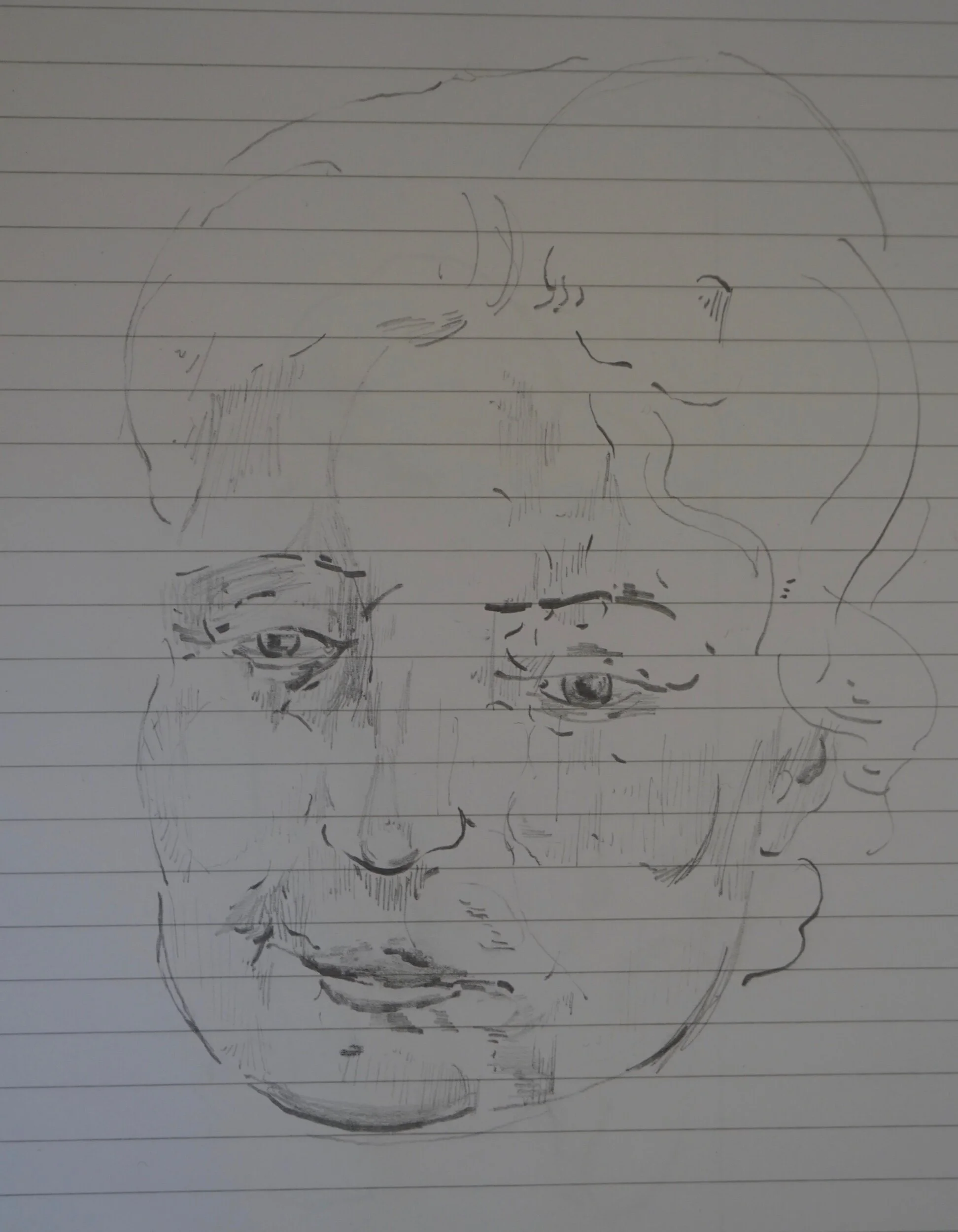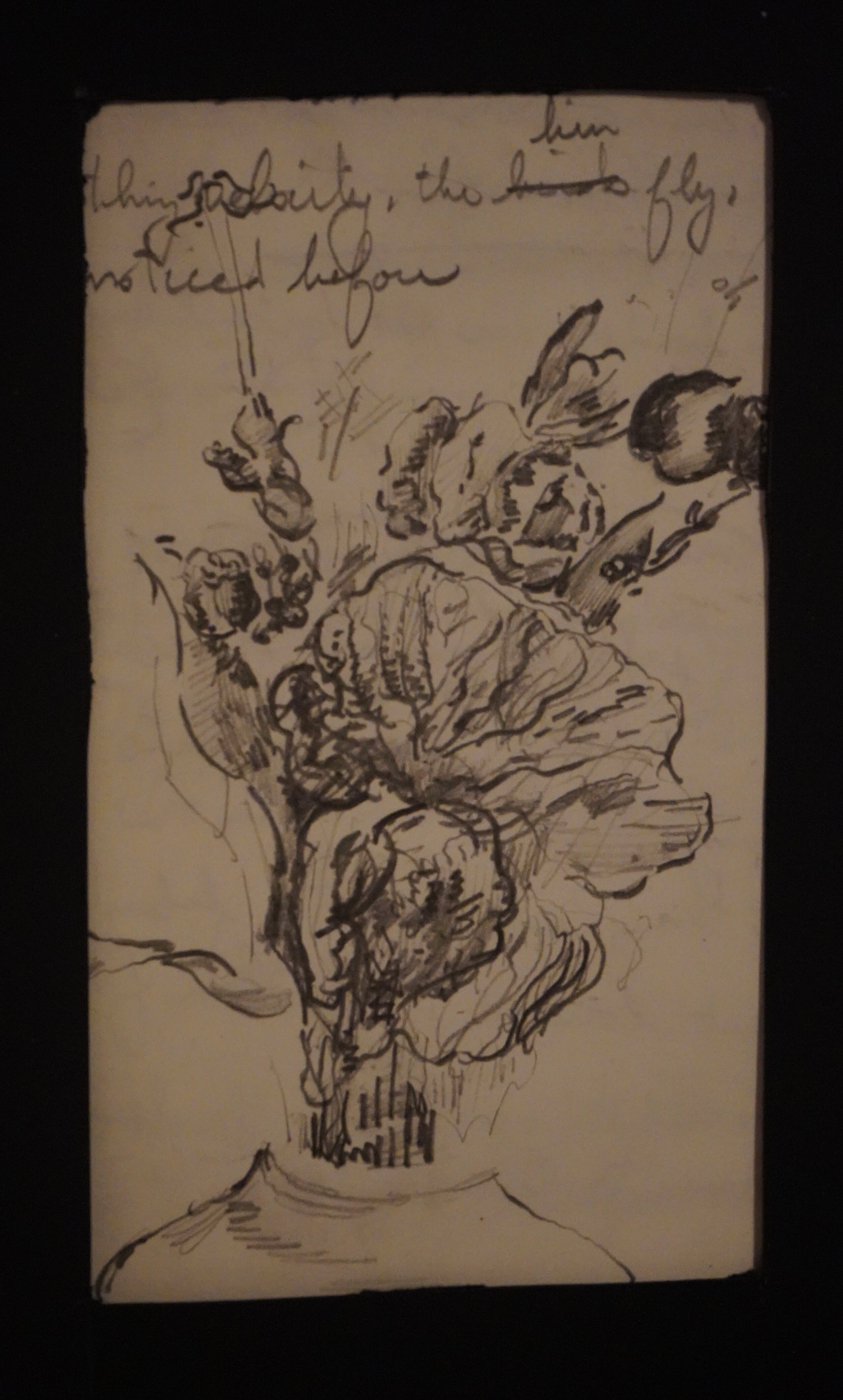Reading Ulysses: Telemachus — by Russell Block
Telemachus
Tell me, Muse, of the man of many devices, driver far astray after he had sacked the sacred citadel of Troy. Many were the men whose cities he saw and whose minds he learned, and many the woes he suffered in his heart upon the sea, seeking to win his own life and the return of his comrades. Yet even so he did not save his comrades, for all his desire, for through their own blind folly they perished — fools, who devoured the cattle of Helios Hyperion whereupon he took from them the day of their returning. Of these things, goddess, daughter of Zeus, beginning where you will, tell us in your turn.
— The Odyssey Book 1
I.
Ulysses again appears, if not foreign to me, then new. My familiarity with the text, especially in consideration of the purposes of this reading, has elucidated elements of the text that slipped my notice, made less pronounced, too, those elements that once seemed the most important. A flag, if it could be observed in a single instant, so that its outward crests and involute removes remained in stasis, is like one reading of a book. Another reading produces a second instant. Between the two, the mind can fill in the negative space and conceive, from the disparate instants, how the flag moves one instant to the next. What at first, while not lifeless, did appear static suddenly takes wind. The text of Ulysses is a flag of such magnitude that my fourth or fifth reading, as these notes are to evidence, still does not completely allow for the free animation of its elements. It is rather as if the self must first be animated by the work before the entirety will resonate. To discover those elements of self of which I am largely unaware is the reason certain works are read in perpetuity.
From the notes in the margin, now six years old, I know that Schubert’s Quintet in C-major was playing when I first commenced the ongoing project of reading Ulysses. That I was in the living room of the family home in Illinois after returning from Detroit is also recorded there. The sun on the pages and filling that room, like the notes I scribbled, were not instilled with an awareness of the bleaker course awaiting me. The maturer capacity, akin to divination, whereby the writer records subtleties merely sensed, such that the words gain permanence, is not detectable in my notes. At the time, it appears my exclusive preoccupation limited my observations to the physical characteristics depicted, to vanities, whenever the description in the refined literature called to mind my own unrefined person. When Buck Mulligan’s hair is described as “grained and hued like pale oak,” I compared my face to birch in the margin. I described a cold toe and my Levis at the bottom of the second page, presumably in response to Buck Mulligan’s yellow dressinggown, described how my hair is not at all tree-like when Buck Mulligan’s hair is described again. I recalled honey I stole from my own roommates when they had their tea with milk and do not pay the milkmaid in full. I denoted when the movements of the Quintet began, until, when Stephen’s mention of atheism reveals a stunning example of free though, I regretted that my thoughts do not feel free despite this similarity. What was excised form the text by the preoccupation of these notes is of far greater interest.
These left out the more cerebral topics this latest reading has discovered, which having discovered, it is to treat. My primrose first hours with the book took little notice of the scheme. When they talk of trousers, nothing evinces a connection between Stephen’s refusal to wear grey and his mourning, nor of Buck Mulligan’s white lather, white and gold evocation of the Eucharist and sacramental wares, or the yellow dressinggown. Outside the scheme, an identification with their social station, their revels in drunkenness, and the prurient interest in redheads, all of which I have felt at one time or another, appears lacking in my notes. The tension between the achievement of the Joyce’s schema and the idea of Ulysses as a novel at its essence looms over critical interpretations, an ongoing argument exemplified by Eliot’s and Pound’s positions on the book, respectively. The two constitute the foundational equilibrium of modernist mimesis.
II.
In treating of Joycean mimesis, the question of how and to what extent parallels are to be drawn between Homer, the source of Joyce’s schema, and Ulysses is a primary concern for any philological reading. The parallels are not entire, and the elements of Homer Joyce omitted are of as much salience as what is made plain.Familiarity with Homeric mimesis is of considerable help in discerning where the parallels are made cognate in the fashion unique to Ulysses. Familiarity with Joyce’s biography, or, if thought of somewhat more cynically, familiarity with Joyce’s hagiography, can also facilitate the reader’s undertaking, although if this essay was to delve into the portrait of the artist as a person the conclusions it draws would feel unearned. Joyce’s canonization is a motivation for all would be novelists when they first approach the book, but that motivation is youthful, the text itself the more sagacious interest.
Our ancient testaments have always been negotiated with by those that would author new material. This is true of the writer who, being faced with the crisis of new realities, finds the monumental works of the past instruct but do not encompass the experience of the present. It is no less true of justices, or academics, although the consequences of their interpretations can become far more damning. Joyce is, or course, influenced by more tributaries than his titular predecessor, Blake, Aristotle, Aquinas among these, that some level of erudition is inevitably lacking. Joyce would have failed if, in the end, the entirety of his thought about literary tradition was not made integral, one, a whole composed of parts rather than a patchwork of influences more restated than rematerialized. All of Ireland, Dublin, and Joyce’s understanding of the flow of literature from Greece in the southeast of Europe to Ireland in the Northwestern isles, is made whole in Ulysses. The mechanisms begun in Telemachus, later playing out in abundant variety and by as abundant subtleties, should be noted here, such that Joyce’s success in making a whole greater than the sum of its parts can be appreciated.
Harkening the progenitor of literary culture and leaving behind his immediate stylistic antecedent, 19th century realism, Joyce embarks on representations of thought’s velocities, representing through these technical means thought’s very substance. Buck Mulligan’’s dumbshow is not merely what is occurring but what Buck Mulligan makes manifest. The action already commenced, this hallucincantation allows for the mundane to promulgate when flights of the more sublime subside, allows too for the sublime to shine through the mundane again in its turn. The characters access Joyce’s scheme and, albeit often ignorant of its salience, prove themselves in possession of mysterious wisdom. In mystery, literature resides.
As it is with the question of how much to make of parallels, the reader is left with the task of making as many connections through inference as sense will sustain. The notes section and lookup function on an iPhone can be of use, a development in man’s hermeneutical capacity that is, in most cases, deleterious, but which, in the right hands, can become more than the shortest channel of the blood to terminate at facebook. A robust and well-written commentary allows for levels of appreciation that would all but surely escape the reader without it. Are we to make anything, for example, from the matter of fact that the lines, recounted by Daedalus in imagining his mother’s youth, I am the boy/That can enjoy/Invisibility. is from the pantomime Turko the Terrible which features a character named Fairy Rose? When a few paragraphs later the latin prayer for the dying that references a lilied throng is recounted, I think the progression from rose to lily becomes more than trivia. Moreover, the implicit distinction between youth and death and popular art and prayer, as it is a thought of Daedalus’, allows for the delicate constitution of character, which Bloom’s wandering thought will burnish.
We observe how Buck Mulligan’s outward show is extended through Stephen Daedalus’ interior signification. Allowing for one of the book’s least desirable, albeit inexorable, influence to enter, they can be viewed like the cathedral and the catechism. The swerves away from Homer, and the narrow way through the archipelagos of influence in general, that define Ulysses come to be started in Telemachus. As a matter of inquiry, what happens when Mentor is demanded by the scheme but the scheme disallows the divine? IF Mentor must have a role, but Athena cannot occupy that form and likeness, what philosophy coheres Joyce’s hetrocosm with Homer’s religious purpose? It is the literary art. It is that literary art that utilizes Nietzschean metempsychosis and the rapidity of association to approximate the divine in all but the immovable essence of a religious divine. “Old and secret she had entered from a morning world, perhaps a messenger,” the book, and presumably Daedalus, relates, identifying the milkman as Athena in the guise of Mentor. The milkman though does not instruct this Odyssey by way of godly wisdom all can perceive, but rather by way of her station, especially apropos Ireland. Ironically, her capacity as the book’s Mentor is born out through her disinterest in the bardic, her lack of fertility, and her superstition and her plainness.
Not only characters, but objects, too, take after Homer through their ritualistic significance. In discussing the cracked lookingglass of a servant, we are presented a reflection of text, and a reflection on the past — Cranly’s arm. His arm. This kicks off the first of many immediacies, this one an imagination of a hazing committed at Oxford, the alma mater of Haines, the Englishman, replete with castration and the concatenation of the Anglican and the ox. Hats and attires contribute to the transmogrifications of characters, Bloom especially, as they are variously described. Objects are receptacle of the scheme. They are invested with immediacy by signifiers, as it is with the snotrag in Telemachus. We see it, in itself perhaps, accumulate Mulligans lather and snot, a green and a white, before Daedalus remarks he must get a new one. With this, he leaves behind the tower and his compatriots, and symbolically does away with memories of his mother’s infirmity, an infirmity made manifest by way of a white china bowl and bile.


